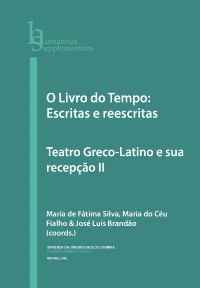Please use this identifier to cite or link to this item:
https://hdl.handle.net/10316.2/40910| DC Field | Value | Language |
|---|---|---|
| dc.contributor.author | Hörster, Maria António | |
| dc.contributor.author | Silva, Maria de Fátima | |
| dc.date.accessioned | 2017-01-02T10:26:29Z | |
| dc.date.accessioned | 2020-09-08T12:50:08Z | - |
| dc.date.available | 2017-01-02T10:26:29Z | |
| dc.date.available | 2020-09-08T12:50:08Z | - |
| dc.date.issued | 2016 | - |
| dc.identifier.isbn | 978-989-26-1297-3 | |
| dc.identifier.isbn | 978-989-26-1298-0 (PDF) | |
| dc.identifier.uri | https://hdl.handle.net/10316.2/40910 | - |
| dc.description.abstract | Hélia Correia produced two texts about Medea: a play, Desmesura. Exercício com Medeia and, before it, a short narrative entitled A de Cólquida. It is this last text we are going to comment. Inspired by ancient versions of the myth different from that adopted by Euripides, it portrays a fragile Medea, living far from her natural world, taken by passion and acomodated to the subservient condition of Greek women. | eng |
| dc.description.abstract | Hélia Correia dedicou ao mito de Medeia dois textos: um em forma dramática, Desmesura. Exercício com Medeia, e, antes dele, uma narrativa breve que intitulou A de Cólquida. É a este último texto que dedicamos a presente reflexão. Inspirado em versões antigas distintas da peça de Eurípides, ele retrata uma Medeia frágil, afastada do seu mundo natural, rendida ao amor e acomodada à condição subserviente da mulher grega. | por |
| dc.language.iso | por | - |
| dc.publisher | Imprensa da Universidade de Coimbra | por |
| dc.publisher | Annablume | por |
| dc.relation.ispartof | http://hdl.handle.net/10316.2/40906 | por |
| dc.rights | open access | - |
| dc.subject | Barbarians | eng |
| dc.subject | women | eng |
| dc.subject | love | eng |
| dc.subject | maternity | eng |
| dc.subject | filicide | eng |
| dc.subject | Bárbaros | por |
| dc.subject | mulher | por |
| dc.subject | amor | por |
| dc.subject | maternidade | por |
| dc.subject | filicídio | por |
| dc.title | Hélia Correia, A de Cólquida | por |
| dc.title.alternative | Hélia Correia, The one from Colchis | eng |
| dc.type | bookPart | por |
| uc.publication.collection | Humanitas Supplementum | por |
| uc.publication.firstPage | 55 | - |
| uc.publication.lastPage | 67 | - |
| uc.publication.location | Coimbra | por |
| dc.identifier.doi | 10.14195/978-989-26-1298-0_3 | - |
| uc.publication.section | Recepção em Portugal e Em Espanha | por |
| uc.publication.digCollection | PB | por |
| uc.publication.orderno | 26 | - |
| uc.publication.area | Artes e Humanidades | por |
| uc.publication.bookTitle | O livro do tempo: escritas e reescritas: teatro greco-latino e sua recepção II | - |
| uc.publication.manifest | https://dl.uc.pt/json/iiif/10316.2/40910/205038/manifest?manifest=/json/iiif/10316.2/40910/205038/manifest | - |
| uc.publication.thumbnail | https://dl.uc.pt/retrieve/11071271 | - |
| uc.publication.parentItemId | 54663 | - |
| uc.itemId | 69023 | - |
| item.grantfulltext | open | - |
| item.fulltext | With Fulltext | - |
| Appears in Collections: | O livro do tempo: escritas e reescritas: teatro greco-latino e sua recepção II | |
Files in This Item:
| File | Description | Size | Format | |
|---|---|---|---|---|
| he_lia_correia__a_de_co_lquida.pdf | 617.19 kB | Adobe PDF |  |
Items in DSpace are protected by copyright, with all rights reserved, unless otherwise indicated.
